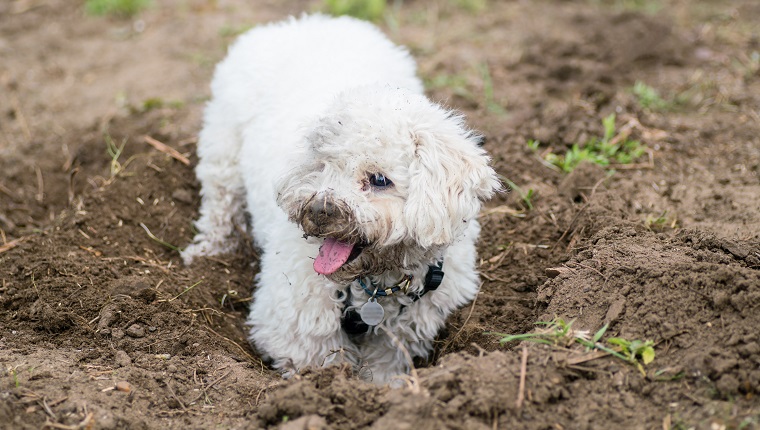Histoplasmosis in dogs is a fungal infection caused by directly eating or inhaling the spores of a fungus known as histoplasma capsulatum. The fungus usually appears in soil contaminated by bird feces.
The infection appears most commonly in areas that have moist and warm weather conditions. It’s most likely to develop in hunting dogs and younger dogs in general, and it can vary in its degree of severity.
If you see signs of this infection in your dog, then you must consult your veterinarian for a proper diagnosis and course of treatment. Here’s what you should know about the symptoms, causes, and treatments for histoplasmosis in dogs.
Symptoms Of Histoplasmosis In Dogs
Histoplasmosis in dogs is a condition that can present itself in a wide variety of ways.
Some of the most common symptoms that appear in dogs include:
Causes Of Histoplasmosis In Dogs

The cause of histoplasmosis in dogs is either eating or inhaling the spores of a fungus called histoplasma capsulatum.
The fungus lives in soil, and it’s believed to come from infected bat and bird droppings. A common way that a dog might expose themselves to the fungus is by digging in the soil.
Treatments For Histoplasmosis In Dogs
If your vet suspects your dog may be suffering from histoplasmosis, then they’ll begin by asking about places where you and the dog have been recently. This is to work out if your dog has been exposed to environments with confirmed cases of the infection.
After asking about any symptoms, your vet might recommended a combination of blood tests, urine tests, X-rays, and stool samples. They may also use cytology to confirm the diagnosis. This process involves using a fine needle to extract fluid from the lymph nodes.
In terms of treatment, veterinarians generally recommend oral anti-fungal medications. They often prescribe the medication for a period of around six months. If your vet prescribes medication for your dog, then it’s important that you follow the dosage instructions accurately and complete the full course of treatment.
In more severe cases, dogs may need hospitalization to receive more critical treatment.
Has your dog ever suffered from a case of histoplasmosis? How did your vet treat the infection? Tell us all about it in the comments below.





